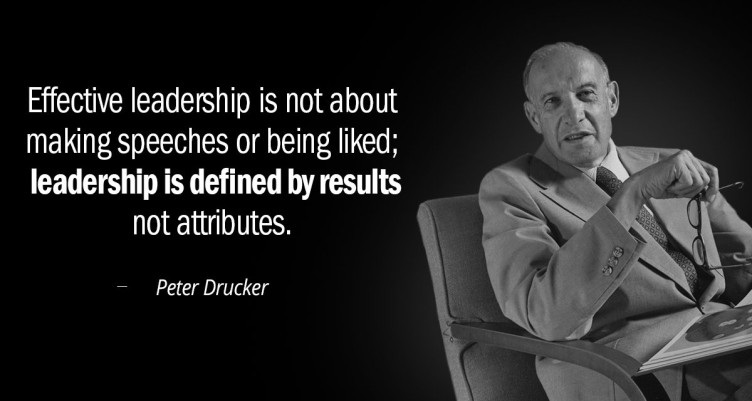Peter Drucker, a well-known management theorist, put forth a model that divides activity within an organisation into three broad categories. We delve into Drucker’s taxonomy of jobs and offer comprehensive descriptions of each category. In order to achieve exceptional and lasting organisational performance, we analyse how business leaders may guarantee the effective execution of all three job kinds.
Manual Work, Knowledge Work, and Management
Jobs can be broken down into three categories, according to Peter Drucker’s framework:
Manual Work: Physically demanding jobs include manual labour in industries including manufacturing, construction, and assembly lines. There is a high degree of repetition and standardisation in manual labour.
Knowledge Work: Knowledge work encompasses jobs that require intellectual capabilities, creativity, problem-solving, and decision-making. Roles like those of researchers, designers, analysts, and professionals in highly specialised fields like law and medicine are some examples.
Management: The management job entails directing and overseeing the work of others, setting objectives, making strategic decisions, and ensuring the effective functioning of the organisation. Managers are accountable for achieving corporate objectives through strategic planning, organisational development, personnel management, and cost control.
Business executives must make sure all three types of positions are being filled in order to achieve excellent and sustainable organisational performance. If any of these tasks are ignored, it might slow down production and development. The organisation benefits in different ways from each job category:
Efficiency and productivity in operations depend critically on the quality of the manual labour force. The goal is to maximise productivity while minimising waste and maximising quality. Neglecting manual labour can result in worse quality work, higher expenses, and unhappy clients.
Workers in the knowledge economy create new value, solve problems, and propel their companies forward. Knowledge work is more likely to succeed when adequate resources, a positive work atmosphere, an emphasis on cooperation, and opportunities for ongoing education are put in place. Knowledge work, if ignored, can inhibit innovation, impair competitiveness, and restrict a company’s ability to respond to shifting market conditions.
Strategic planning, sound decision-making, and the proper allocation of resources to achieve organisational objectives all require capable management. Managers who are effective in their jobs provide direction, inspire their teams, and keep everything running smoothly. If management is ignored, chaos, lack of focus, and poor collaboration can spread throughout a business, resulting in missed opportunities and subpar output.
How can we put these three tasks into action?
Some tactics that corporate executives can use to successfully execute all three job categories:
Identified and Shared Responsibilities: The responsibilities of each position should be spelt out in detail. Make sure everyone knows how their work fits into the big picture and how important they are. Help your staff reach their full potential by giving them the tools they need to do their jobs well.
Foster open lines of communication: This promotes teamwork amongst various occupations to improve efficiency. Make use of multidisciplinary groups to boost collaboration, problem-solving, and creative thinking. This allows for a more comprehensive strategy for problems and the use of many different types of knowledge.
Professional and Personal Growth: Fosters an environment where employees at all levels are encouraged to pursue lifelong education and growth opportunities. Provide courses, mentorship, and other means of skill development. Inspire your staff to learn more about the latest developments, innovations, and best practices in the business.
Performance Evaluation and Incentives: Establish methods for judging employees’ efforts and providing appropriate incentives to motivate them to excel in their work. Set up definite benchmarks, objectives, and measures of success. Motivate and retain hard-working employees by offering them merit-based compensation and promotion chances.
Leadership Training and Education: Provide opportunities for managers to learn the skills they need to be effective leaders of their teams. Help them learn to think strategically, make sound decisions, and lead productive teams. Strong leadership keeps an organisation committed to its mission, flexible in the face of change, and able to achieve its goals.
Organisation Culture and Values: Develop a company culture that recognises and rewards the efforts of employees across all departments. Instil a sense of accomplishment and responsibility in those who perform manual labour, intellectual labour, and managerial duties. Encourage a setting where people can work together and where differences in opinion and approach are valued.
Peter Drucker identified three distinct categories of labour: routine tasks, specialised knowledge work, and managerial responsibilities. Successful corporate leaders understand the importance of valuing all employees equally in order to maximise operational efficiency, drive innovation, and give strong leadership. Organizations may take advantage of the qualities of all three job types by clearly outlining responsibilities, improving lines of communication, providing opportunities for on-the-job training and growth, promoting a positive work environment, and cultivating strong leaders. Successfully navigating today’s complicated and ever-changing business climate requires the adoption of this approach.
See Article in Linkedin : Click Here

